#neurology hospital in banashankari bangalore
Text
https://www.sagarhospitals.in/categories/sagar-heart-vascular-institute/
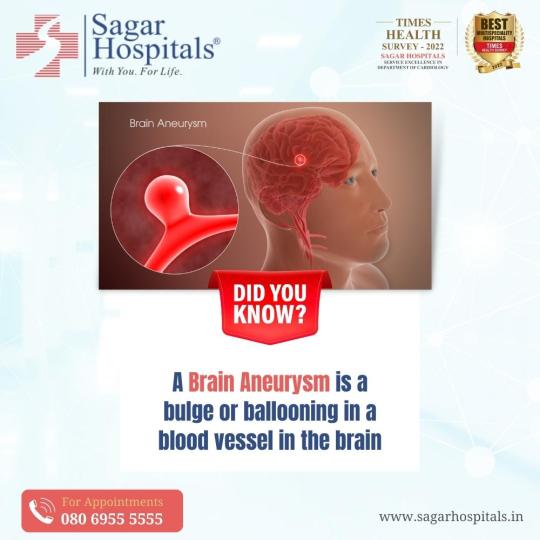
#neuro hospital in banashankari#neurology hospital in banashankari#best neurologist in banashankari#Neurosurgeon in banashankari#neurology hospital in banashankari bangalore#Consultant Neurosurgeon in Jayanagar#Consultant Neurologist in Jayanagar#best neurosurgeon in Jayanagar#neuro hospital in Jayanagar#neuro hospital in bangalore#best neurology hospital in bangalore#neurology hospital in bangalore#brain hospital in bangalore#best neurosurgeon in bangalore#Neurosurgeon in Bangalore#Consultant Neurosurgeon in Bangalore#Consultant Neurologist in Bangalore
0 notes
Text
Clogged Arteries in Brain (Stroke): Causes, Risk Factors, and Treatment
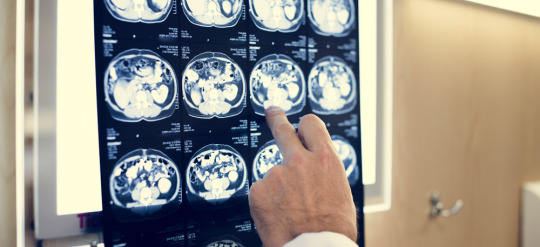
The brain plays a very crucial role as one of the major organs of our body as it also controls the functioning of the other parts of our body. Blood supply to the brain is taken care of by an important artery known as the Carotid Artery, located on each side of our neck.
According to seasoned doctors working at Sagar Hospital, the best hospital for stroke treatment in Bangalore, all is good as long as the artery is clean and the supply is smooth. But if there is a blockage in this artery, the blood supply is disrupted and this is the main reason for the cause of a stroke.
What can cause clogged arteries in the Brain?
One of the major reasons for the clogging of arteries in the brain is the formation of plaques. These are hard substances which can be formed by proteins, fats and calcium.
Best Neurologists in Bangalore have stressed that plaque formation can be extremely dangerous as it narrows down the arteries and subsequently, the flow of blood to the brain is reduced considerably. This can cause unprecedented damage to the brain which could even be fatal at times.
What are the risk factors for Clogged Arteries in the Brain?
According to seasoned medical experts associated with Sagar Hospital, the best brain hospital in Bangalore, the risk factors for clogged or blocked arteries in the brain include the following:
High Blood Pressure
Elevated Cholesterol levels
Elevated Blood Sugar Levels
Obesity
Lack of physical activity
Smoking and Alcohol
Age
Family history
What are the possible symptoms of clogged arteries in the brain?
Experienced Neurologists from Sagar Hospital, the best hospital in Bangalore, indicate that a person may experience symptoms only when the arteries become clogged. The symptoms may include:
Difficulty in speaking
Difficulty in understanding
Weakness in the legs, arms, and face
Dizziness and vertigo
Drooping of the face on one side
Severe pain in the head
Anyone experiencing the above symptoms must immediately get in touch with a Neurosurgeon in Bangalore.
What are the types of treatments available for Clogged Arteries in the Brain?
As per efficient neurosurgeons from Sagar Hospital, the best neurology hospital in Bangalore, the treatment for a blocked artery in the brain can vary from person to person depending upon the complexity of the situation. The treatment is based on the symptoms and whether a person has experienced a stroke or not. It can include,
Medical (Non-invasive) treatment
Surgical treatment
If a person suffers from a severe stroke, the doctor will advise an invasive surgical treatment.
#brain hospital in bangalore#neurology hospital in bangalore#best neurosurgeon in bangalore#best hospital in bangalore#Multispeciality Hospital in Bangalore#Neurosurgeon in Bangalore#Consultant Neurosurgeon in Bangalore#Consultant Neurologist in Bangalore#best neurology hospital in banashankari#neuro hospital in banashankari#neurology hospital in banashankari#Multispeciality Hospital in banashankari#brain hospital in banashankari#best cardiac surgeon in banashankari#best hospital for stroke treatment in banashankari#best neurosurgeon in banashankari#best cardiologist in banashankari#Neurosurgeon in banashankari#neurologist in banashankari#neurology hospital in banashankari bangalore#Consultant Neurosurgeon in Jayanagar#Multispeciality Hospital in Jayanagar#Consultant Neurologist in Jayanagar#best hospital in Jayanagar#brain hospital in Jayanagar#best neurosurgeon in Jayanagar#Neurosurgeon in Jayanagar#best neurology hospital in Jayanagar#best cardiac surgeon in Jayanagar#neuro hospital in Jayanagar
0 notes
Text
How Anxiety affects your Body

Anxiety is a commonly heard health disorder which is related to our mind. The word anxious is widely used in our day-to-day life whenever we are very keen to know about something may it be the health of a loved one or even anticipating a rare achievement. However, neurologists in Bangalore associated with Sagar Hospital warn that anxiety can test you as an individual to no end.
Let us try to understand more about anxiety and how it can affect your body
What is Anxiety?
Seasoned medical experts working with Sagar Hospital, the renowned Multispeciality hospital in Bangalore, describe anxiety as a group of disorders that can cause worry, nervousness, and fear. Anxiety can interrupt day-to-day life as in some cases, people cannot identify a trigger and feel anxious for what seems like no reason.
It is quite common for people to feel anxious in some situations, such as before an important presentation or meeting. However, as per consultant neurologists in Bangalore associated with Sagar Hospital, persistent anxiety can interfere with a person’s well-being. The positive part is that anxiety attacks respond well to treatment.
What can cause Anxiety?
Experienced Neurologists from Sagar Hospital, the best neurology hospital in Bangalore, attribute the cause of anxiety to a couple of factors as given below:
Genetic Factors
Environmental changes
Chronic medical conditions such as hypertension, diabetes and heart diseases
Stress at work
Stressful domestic conditions
Injuries through an accident
Other mental health disorders
How does Anxiety affect your body?
On feeling stressed or frightened, the brain transmits signals to other parts of the body. Subsequently, stress hormones are released by the body as a response. Prolonged anxiety increases the risk of developing chronic physical conditions. Some of the ways that anxiety affects the body include:
Breathing and respiratory changes
Anxious periods can impact respiration leading to difficulty in breathing.
Cardiovascular system response
Prolonged Anxiety can alter heart rate and cause insufficient blood circulation leading to heart diseases even in an otherwise healthy individual.
Impacts immune function
While rare and short-term anxiety attacks can be a boon to the immune system, prolonged anxiety can have the opposite effect. People with chronic anxiety disorders may be more likely to get the common cold, flu and other types of infections.
Disrupts smooth functioning of the digestive system
The smooth functioning of our digestive system is necessary to help us maintain overall good health. Long-duration anxiety can cause nausea, diarrhoea and stomach infections in people leading to a loss of appetite.
Can impact the Urinary System
Anxiety and stress can increase the need to urinate or increase symptoms of urinary incontinence. It is therefore crucial not to ignore symptoms of prolonged anxiety and take the advice of a consultant neurologist in Bangalore immediately. Sagar hospital, a neurology hospital of national repute in Bangalore, has a versatile team of top neurologists with a proven track record in addressing anxiety to the complete satisfaction of patients.
#best neurology hospital in banashankari#neurology hospital in banashankari#brain hospital in banashankari#Consultant Neurologist in banashankari#best neurosurgeon in banashankari#best neurologist in banashankari#Neurosurgeon in banashankari#neurologist in banashankari#neurology hospital in banashankari bangalore#Consultant Neurosurgeon in Jayanagar#Multispeciality Hospital in Jayanagar#Consultant Neurologist in Jayanagar#best neurosurgeon in Jayanagar#Neurosurgeon in Jayanagar#best neurology hospital in Jayanagar#neuro hospital in Jayanagar#neurologist in Jayanagar#best neurologist in Jayanagar#neurology hospital in Jayanagar#neurologist in bangalore#neuro hospital in bangalore#neurology hospital in bangalore#best hospital for stroke treatment in bangalore#Neurosurgeon in Bangalore#Consultant Neurosurgeon in Bangalore#Consultant Neurologist in Bangalore#Multispeciality Hospital in Bangalore#best neurosurgeon in bangalore
0 notes
Text
https://www.sagarhospitals.in/
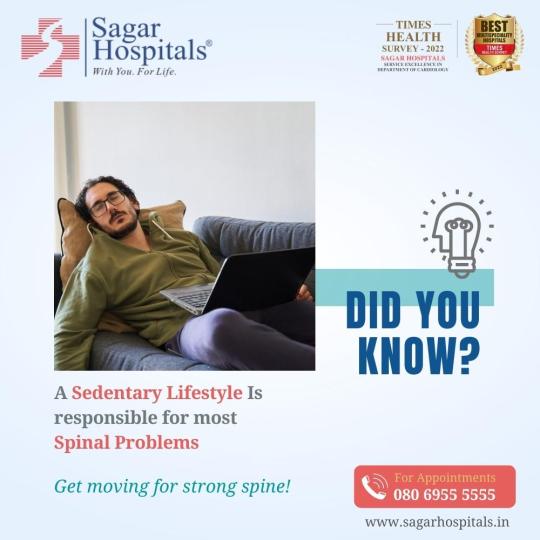
#Consultant Neurosurgeon in banashankari#best neurology hospital in banashankari#neuro hospital in banashankari#neurology hospital in banashankari#gallbladder surgery cost in banashankari#Multispeciality Hospital in banashankari#Consultant Neurologist in banashankari#best hospital in banashankari#best hospital for stroke treatment in banashankari#best neurosurgeon in banashankari#best neurologist in banashankari#orthopaedic hospital in banashankari#spine surgery in banashankari#Neurosurgeon in banashankari#neurology hospital in banashankari bangalore#back pain treatment in banashankari#Neurosurgeon in Bangalore#Consultant Neurosurgeon in Bangalore#Consultant Neurologist in Bangalore#Multispeciality Hospital in Jayanagar#best hospital for stroke treatment in Jayanagar#Consultant Neurologist in Jayanagar#best neurosurgeon in Jayanagar#Neurosurgeon in Jayanagar#best neurology hospital in Jayanagar#neurologist in Jayanagar#best neurologist in Jayanagar#neurology hospital in Jayanagar#spine surgery in Jayanagar#back pain treatment in Jayanagar
0 notes
Text
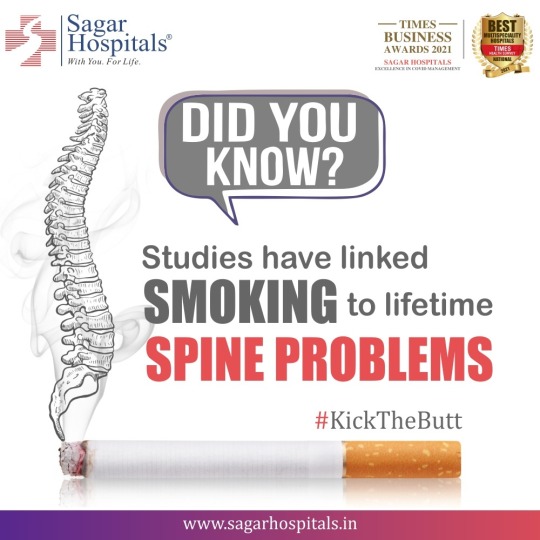
Sagar Hospitals is the leader in brain and spine surgery, epilepsy surgery, advanced stroke care, head injury, poly trauma and comprehensive neurological care. CT, MRI, PET & Neurosonology scans are available to diagnose and treat brain and spine conditions.
#Consultant Neurosurgeon in banashankari#best neurology hospital in banashankari#neuro hospital in banashankari#neurology hospital in banashankari#gallbladder surgery cost in banashankari#Multispeciality Hospital in banashankari#brain hospital in banashankari#best hospital in banashankari#Consultant Neurologist in banashankari#best neurosurgeon in banashankari#best neurologist in banashankari#spine surgery in banashankari#orthopaedic hospital in banashankari#best orthopedic hospital in banashankari#Neurosurgeon in banashankari#neurologist in banashankari#back pain treatment in banashankari#neurology hospital in banashankari bangalore#best orthopedic surgeon in banashankari bangalore#best neurologist in bangalore#neurologist in bangalore#neuro hospital in bangalore#best neurology hospital in bangalore#neurology hospital in bangalore#brain hospital in bangalore#best neurosurgeon in bangalore#orthopaedic hospital in bangalore#best orthopedic hospital in bangalore#best orthopedic surgeon in bangalore#best hospital in bangalore
0 notes
Text
https://www.sagarhospitals.in/

#neuro hospital in banashankari#gallbladder surgery cost in banashankari#brain hospital in banashankari#best heart hospital in banashankari#best cardiology hospital in banashankari#Consultant Neurologist in banashankari#heart specialist hospital in banashankari#urology hospital in banashankari#best orthopedic surgeon in banashankari#best hospital for stroke treatment in banashankari#best urology hospital in banashankari#neurology hospital in banashankari bangalore#best orthopedic surgeon in banashankari bangalore#neurologist in bangalore#neuro hospital in bangalore#best neurology hospital in bangalore#brain hospital in bangalore#best neurosurgeon in bangalore#best heart hospital in bangalore#best cardiology hospital in bangalore#best cardiologist in bangalore#urology hospital in Bangalore#urologist in bangalore#best urology hospital in bangalore#orthopaedic hospital in bangalore#best orthopedic hospital in bangalore#best orthopedic surgeon in bangalore#best knee replacement surgeon in bangalore
0 notes
Text
https://www.sagarhospitals.in/categories/sagar-brain-spine-institute/
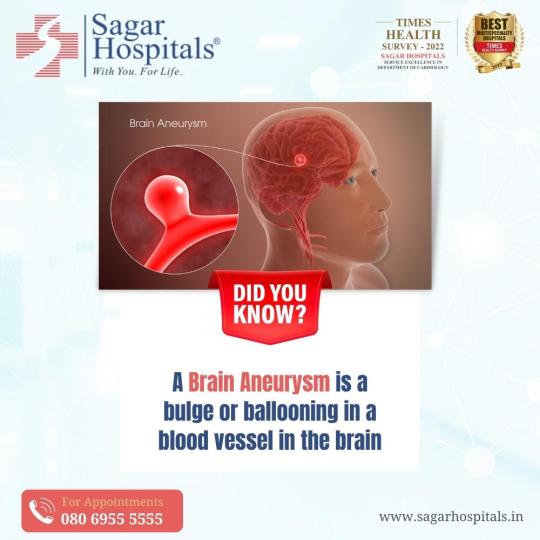
#Multispeciality Hospital in Bangalore#back pain treatment in bangalore#spine surgery in bangalore#Neurosurgeon in Bangalore#Consultant Neurosurgeon in Bangalore#Consultant Neurologist in Bangalore#neuro hospital in banashankari#neurology hospital in banashankari#brain hospital in banashankari#best neurologist in banashankari#Neurosurgeon in banashankari#back pain treatment in banashankari#Consultant Neurosurgeon in Jayanagar#Consultant Neurologist in Jayanagar#best neurosurgeon in Jayanagar#Neurosurgeon in Jayanagar#best knee replacement surgeon in Jayanagar#neuro hospital in Jayanagar#best neurologist in Jayanagar#neurology hospital in Jayanagar#spine surgery in Jayanagar#back pain treatment in Jayanagar
0 notes
Text
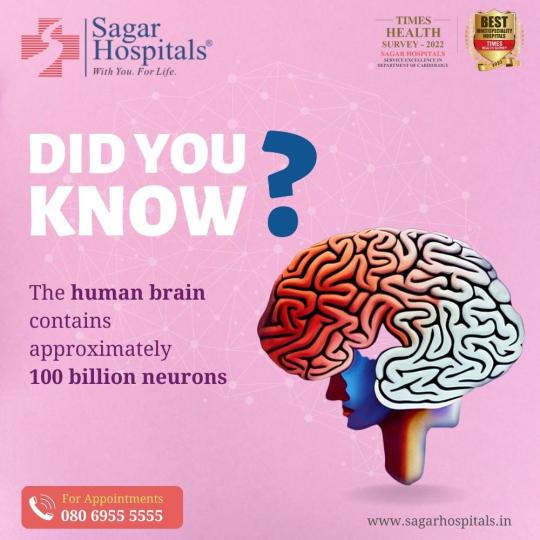
Sagar Hospitals is the best neuro hospital in banashankari and Jayanagar. We treat condition related to brain and spine surgery like epilepsy surgery, advanced stroke care, head injury, poly trauma and comprehensive neurological care. CT, MRI, PET & Neurosonology scans are available to diagnose and treat brain and spine conditions. We have the best neurologist in banashankari and Jayanagar
#Neurosurgeon in Bangalore#Consultant Neurosurgeon in Bangalore#best neurologist in bangalore#neurologist in bangalore#neuro hospital in bangalore#best neurology hospital in bangalore#neurology hospital in bangalore#brain hospital in bangalore#best neurosurgeon in bangalore#Multispeciality Hospital in Bangalore#best hospital in bangalore#spine surgery in bangalore#back pain treatment in bangalore#neuro hospital in banashankari#neurology hospital in banashankari#brain hospital in banashankari#Consultant Neurologist in banashankari#best neurologist in banashankari#Neurosurgeon in banashankari#neurologist in banashankari#back pain treatment in banashankari#Consultant Neurosurgeon in Jayanagar#Consultant Neurologist in Jayanagar#brain hospital in Jayanagar#Neurosurgeon in Jayanagar#best neurology hospital in Jayanagar#neuro hospital in Jayanagar#neurologist in Jayanagar#best neurologist in Jayanagar#neurology hospital in Jayanagar
1 note
·
View note
Text
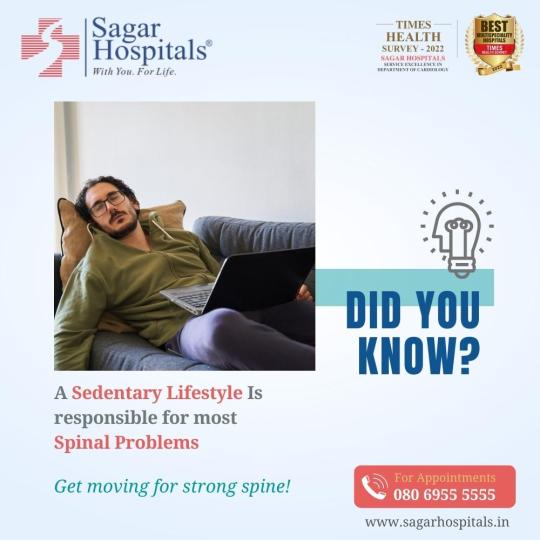
#best neurologist in bangalore#neurologist in bangalore#neuro hospital in bangalore#best neurology hospital in bangalore#neurology hospital in bangalore#brain hospital in bangalore#best neurosurgeon in bangalore#best hospital in bangalore#Multispeciality Hospital in Bangalore#spine surgery in bangalore#best hospital for stroke treatment in bangalore#Neurosurgeon in Bangalore#Consultant Neurosurgeon in Bangalore#Consultant Neurologist in Bangalore#neuro hospital in banashankari#neurology hospital in banashankari#brain hospital in banashankari#best neurosurgeon in banashankari#best neurologist in banashankari#Neurosurgeon in banashankari#neurologist in banashankari#back pain treatment in banashankari#neurology hospital in banashankari bangalore#Consultant Neurosurgeon in Jayanagar#Multispeciality Hospital in Jayanagar#best hospital for stroke treatment in Jayanagar#Consultant Neurologist in Jayanagar#brain hospital in Jayanagar#best neurosurgeon in Jayanagar#Neurosurgeon in Jayanagar
0 notes
Text
Anterior Cruciate Ligament

What is Anterior Cruciate Ligament?
The Anterior Crucial Ligament (ACL) is one of the most critical ligaments present in the knee joint. The entire weight of the body during most of your routine activities is taken by the knee joint which is well supported by muscles, ligaments and soft tissues. It plays a very crucial role in facilitating leg movements like side stepping and climbing. According to doctors associated with the best orthopaedic hospital in Bangalore, the anterior cruciate ligament (ACL) is one of the four main ligaments that hold your knee.
However, neurosurgeons associated with Sagar Hospital, the orthopaedic hospital in Bangalore of national repute, warn that the ACL is a very sensitive part and any injury caused can have serious complications.
Let us understand a bit more about ACL.
What is an ACL Injury?
Best Orthopaedic Surgeons in Bangalore describe an ACL injury as a tear or sprain of the Anterior Cruciate Ligament. Most often, these types of injuries are associated with outdoor sporting activities like soccer, baseball, basketball etc. Your knee may swell leading to unbearable pain which might indicate the possibility of an ACL.
What can cause an ACL Injury?
The Anterior Cruciate Ligament connects the thigh bone with the shin bone. This way, it helps stabilise the knee joint. However, the best knee replacement surgeons in Bangalore, associated with Sagar hospital are of the opinion that ACL injuries often happen during sports and fitness activities that can put stress on the knee. The activities might include,
Suddenly slowing down
Immediately changing direction
Landing awkwardly from a high or long jump
Stopping suddenly
A direct impact on the knee due to a collision.
What are the symptoms of ACL?
Orthopaedic surgeons associated with Sagar Hospital, the best hospital in Bangalore, attribute the symptoms of ACL to the following:
Severe swelling noticed in the knee area
Severe pain in the knee making movement extremely difficult
A sudden feeling of insecurity in the area.
A sudden feeling of losing balance by not being able to bear the weight of the body.
It is highly recommended to visit the best orthopaedic hospital in Bangalore immediately on observing any of the above symptoms without further delay.
How is ACL Diagnosed?
Your consultant neurologist in Bangalore will begin the assessment by trying to find out how the injury happened. This will be followed by certain physical examinations which can help him find out the depth of the injury. If need be, your doctor might recommend certain imaging tests including X-Ray, MRI or even an ultrasound scan.
Sagar Hospital is rated as the Multispeciality hospital in Bangalore that offers world-class treatment for Anterior Cruciate Ligament injuries.
How can ACL be treated/ prevented?
According to the best orthopaedic surgeons in Bangalore, depending on the severity of your ACL injury, treatment may include rest and rehabilitation exercises to help you regain strength and stability, or surgery to replace the damaged knee. Training and exercises guided by professionals can help reduce the risk of ACL injury. Getting expert advice from a sports medicine physician, physical therapist or athletic trainer can help in the assessment of the damage and quantum of treatment and future care required.
#orthopaedic hospital in bangalore#best orthopedic hospital in bangalore#best orthopedic surgeon in bangalore#best knee replacement surgeon in bangalore#best hospital in bangalore#Multispeciality Hospital in Bangalore#Neurosurgeon in Bangalore#Consultant Neurosurgeon in Bangalore#Consultant Neurologist in Bangalore#spine surgery in bangalore#Multispeciality Hospital in Jayanagar#best hospital for stroke treatment in Jayanagar#Consultant Neurologist in Jayanagar#best hospital in Jayanagar#orthopaedic hospital in Jayanagar#best orthopedic hospital in Jayanagar#best neurologist in Jayanagar#neurology hospital in Jayanagar#best orthopedic surgeon in Jayanagar#best neurology hospital in banashankari#Multispeciality Hospital in banashankari#best hospital in banashankari#best orthopedic surgeon in banashankari#best hospital for stroke treatment in banashankari#best orthopedic hospital in banashankari#orthopaedic hospital in banashankari#Neurosurgeon in banashankari#best orthopedic surgeon in banashankari bangalore
0 notes
Text
https://www.sagarhospitals.in/
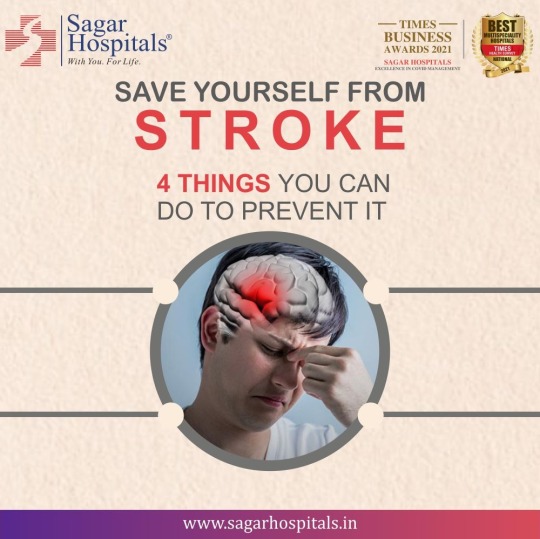
Sagar Hospitals is the leader in brain and spine surgery, epilepsy surgery, advanced stroke care, head injury, poly trauma and comprehensive neurological care. CT, MRI, PET & Neurosonology scans are available to diagnose and treat brain and spine conditions.
#best hospital in bangalore#Multispeciality Hospital in Bangalore#heart specialist hospital in bangalore#best cardiac surgeon in bangalore#best gastroenterologists in bangalore#best hospital for stroke treatment in bangalore#Neurosurgeon in Bangalore#Consultant Neurosurgeon in Bangalore#Consultant Neurologist in Bangalore#neurologist in bangalore#neuro hospital in bangalore#best neurology hospital in bangalore#neurology hospital in bangalore#brain hospital in bangalore#best neurosurgeon in bangalore#Consultant Neurosurgeon in banashankari#best neurology hospital in banashankari#neuro hospital in banashankari#neurology hospital in banashankari#Multispeciality Hospital in banashankari#brain hospital in banashankari#Consultant Neurologist in banashankari#best cardiac surgeon in banashankari#best hospital for stroke treatment in banashankari#best neurosurgeon in banashankari#best cardiologist in banashankari#best neurologist in banashankari#Neurosurgeon in banashankari#neurologist in banashankari#back pain treatment in banashankari
0 notes
Text
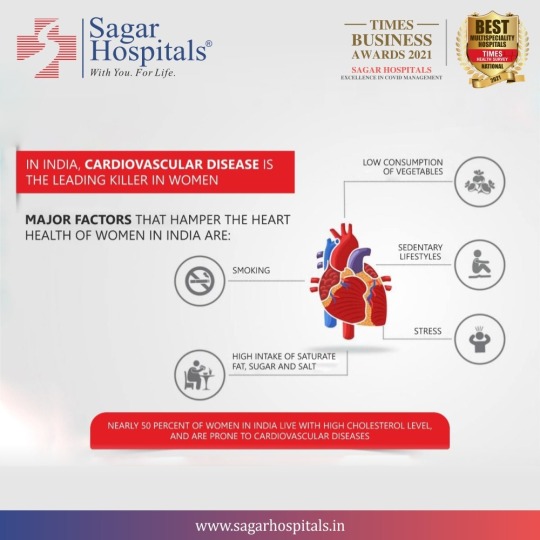
Sagar Hospitals is the best orthopedic hospital in Bangalore. Our orthopedic doctors offer complete bone and joint care. We perform complex procedures such as hip replacement, knee replacement, shoulder replacement, keyhole surgeries, physiotherapy & rehabilitation
#heart specialist hospital in bangalore#best neurosurgeon in bangalore#best heart hospital in bangalore#best cardiology hospital in bangalore#best cardiologist in bangalore#urology hospital in Bangalore#urologist in bangalore#best urology hospital in bangalore#orthopaedic hospital in bangalore#best orthopedic hospital in bangalore#best orthopedic surgeon in bangalore#best knee replacement surgeon in bangalore#neurologist in bangalore#neuro hospital in bangalore#best neurology hospital in bangalore#neurology hospital in bangalore#brain hospital in bangalore#neuro hospital in banashankari#gallbladder surgery cost in banashankari#brain hospital in banashankari#best heart hospital in banashankari#best orthopedic surgeon in banashankari#Consultant Neurologist in banashankari#best hospital in banashankari#heart specialist hospital in banashankari#best hospital for stroke treatment in banashankari#Multispeciality Hospital in Jayanagar#best hospital in Jayanagar#best cardiology hospital in Jayanagar#heart specialist hospital in Jayanagar
0 notes
Text
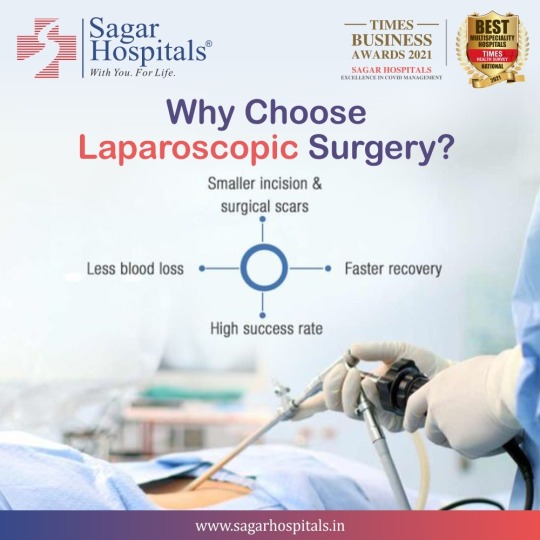
We provide the Best minimal invasive surgery in Bangalore. Sagar Hospitals specializes in Laparoscopic techniques. Minimally Invasive Surgery involves faster recovery, less pain, shorter hospital stays & lower risk of procedure-related complications in patients
#heart specialist hospital in bangalore#best heart hospital in bangalore#best cardiology hospital in bangalore#best cardiologist in bangalore#urology hospital in Bangalore#neurologist in bangalore#neuro hospital in bangalore#best neurology hospital in bangalore#neurology hospital in bangalore#brain hospital in bangalore#best neurosurgeon in bangalore#best cardiac surgeon in bangalore#best gastroenterologists in bangalore#best hospital for stroke treatment in bangalore#neuro hospital in banashankari#gallbladder surgery cost in banashankari#brain hospital in banashankari#best heart hospital in banashankari#best cardiology hospital in banashankari#Consultant Neurologist in banashankari#heart specialist hospital in banashankari#best knee replacement surgeon in banashankari#urology hospital in banashankari#best orthopedic surgeon in banashankari#best cardiac surgeon in banashankari#best neurosurgeon in banashankari#best urology hospital in banashankari#best orthopedic hospital in banashankari#laparoscopic surgery cost in banashankari#best cardiologist in banashankari
0 notes
Text
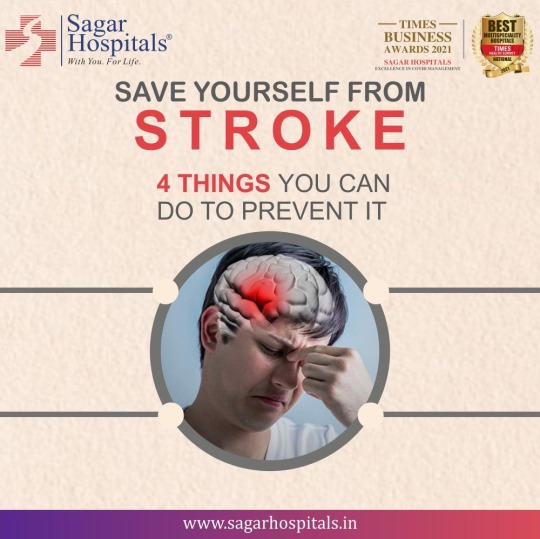
#best neurology hospital in bangalore#urology hospital in Bangalore#best cardiology hospital in bangalore#best cardiologist in bangalore#urologist in bangalore#best urology hospital in bangalore#Multispeciality Hospital in Bangalore#heart specialist hospital in bangalore#best cardiac surgeon in bangalore#best gastroenterologists in bangalore#spine surgery in bangalore#best hospital for stroke treatment in bangalore#Neurosurgeon in Bangalore#Consultant Neurosurgeon in Bangalore#Multispeciality Hospital in Jayanagar#heart specialist hospital in Jayanagar#best cardiac surgeon in Jayanagar#neurology hospital in Jayanagar#neuro hospital in banashankari#gallbladder surgery cost in banashankari#brain hospital in banashankari#best heart hospital in banashankari#best cardiology hospital in banashankari#Consultant Neurologist in banashankari#heart specialist hospital in banashankari#urology hospital in banashankari#best knee replacement surgeon in banashankari#best orthopedic surgeon in banashankari#best cardiac surgeon in banashankari#best neurosurgeon in banashankari
0 notes
Text
https://www.sagarhospitals.in/
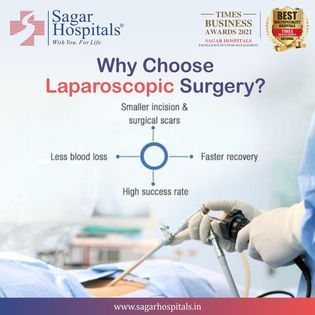
#Multispeciality Hospital in Jayanagar#best neurology hospital in bangalore#neurology hospital in bangalore#brain hospital in bangalore#best neurosurgeon in bangalore#best heart hospital in bangalore#best cardiology hospital in bangalore#best cardiologist in bangalore#urology hospital in Bangalore#best orthopedic hospital in bangalore#Multispeciality Hospital in Bangalore#heart specialist hospital in bangalore#best cardiac surgeon in bangalore#spine surgery in bangalore#best hospital for stroke treatment in bangalore#Neurosurgeon in Bangalore#Consultant Neurosurgeon in Bangalore#Consultant Neurologist in Bangalore#neuro hospital in banashankari#gallbladder surgery cost in banashankari#brain hospital in banashankari#best heart hospital in banashankari#best cardiology hospital in banashankari#Consultant Neurologist in banashankari#heart specialist hospital in banashankari#urology hospital in banashankari#best orthopedic surgeon in banashankari#best urology hospital in banashankari#best orthopedic surgeon in banashankari bangalore#neurology hospital in banashankari bangalore
0 notes
Text
10 Health Tips to Prevent Digestive Problems

As we age past the robust health of our youth, certain health problems start appearing on the horizon of our everyday attention. Digestive problems are one of them. Though not seemingly debilitating, digestion problems can definitely disrupt daily activities and make you think twice about taking an unplanned trip if you suffer from them.
So, what determines the health of this system that keeps us running? The food you eat and your daily lifestyle have a direct impact on the health of your digestive system. Over time, factors such as lack of activity, medications, and every day habits can take their toll and contribute to digestive issues. When there is something that disturbs your digestive system, you will most likely experience unpleasant symptoms. While some problems require a visit to your gastroenterologist, others may be related to your lifestyle and can be prevented.
Taking caution and steps to improve your digestive health can not only protect and improve your long-term digestive function, but have a positive impact on your overall health as well.
The following are some effective strategies and tips to help prevent digestive problems:
1. Track and avoid triggers that create digestive problems for you
Various things, that vary from person to person, can trigger digestive problems. You will have to identify what kinds of eating patterns, habits, and foods trigger digestive issues for you in particular. For some people, tricky foods can be dairy. For others, it can be gluten. Coffee, fizzy/ carbonated drinks, and dairy products are common causes for gas and diarrhoea.
Over the counter or prescription medication can also cause digestive upsets. Since such triggers can vary from person to person, it is best to track your diet and medication to identify your personal triggers. For instance, you can try an elimination diet to identify foods that irritate your digestive tract. You can also talk to your doctor to help identify any potential allergies and other food sensitivities. Inquire about any known side effects of any medication you are currently on to see if that is the culprit.
Certain activities such as travel and events such as menstrual hormones can affect your digestion also. If you suspect a connection, start taking note of foods and drinks, medication or supplements, and daily activities and events. You may start finding correlations between these tracked factors and digestive issues.
2. Make fibre a major portion of your diet
Fibre-rich food is highly beneficial to digestive function. Fibre adds bulk to your stool and keeps it moving smoothly through your digestive tract. A high-fibre diet is a key component in alleviating and preventing constipation. Increasing fibre intake prevents gas, bloating, and diarrhoea. A fibre-rich diet also helps maintain a healthy balance of gut bacteria that play a big role in the overall health of your digestive system. So, consuming a diet rich in vegetables, fruits, whole grains, and legumes can help improve your digestive health and prevent many digestive ailments such as heartburn, irritable bowel syndrome (IBS), haemorrhoids, diarrhoea, gas, nausea, and intestinal cramps.
3. Incorporate both soluble and insoluble fibre
You may have heard of soluble fibre with its growing popularity in food trends. It is a reputation, that is thankfully, well earned. Though dietary fibre is part of food that mostly passes through your system without being broken down too much, it plays an important role in our digestive function. In addition, fibres play an important role in maintaining healthy body weight.
Dietary fibre is of two kinds: soluble and insoluble fibre; both have unique benefits.
Soluble fibre, mostly in the form of gums and plant pectin, dissolves in water into a gel-like substance in our digestive tract and aids in digestion by bulking up watery stools. Soluble fibre helps in regulating blood glucose levels and reduces the risk of diabetes. It also helps reduce cholesterol in the blood and is heart-friendly. Good sources of soluble fibre are nuts, seeds, legumes (kidney, black, and lima beans), fruits (avocado, apricots, pears), and vegetables (carrots, turnips, ladies fingers).
Insoluble fibre, also called roughage, helps food pass through your digestive system with less strain and helps improve bowel regularity and health. It also helps regulate blood sugar levels and prevent diabetes. Good sources of insoluble fibre are whole grains, vegetables, and fruits.
4. Drink adequate water
Water is essential for good health and bowel function. It helps cleanse the digestive system and prevents constipation by softening stools. It aids the digestive function by helping break down food and improving the absorption of nutrients by your body. Drinking plenty of water will help you avoid dehydration and help you stay hydrated if you are suffering from diarrhoea.
Your aim should be to drink at least 8 glasses of water every day. However, you should avoid sugary and caffeinated drinks – they can make digestive problems worse. Also, to prevent ‘traveller���s diarrhoea,’ drink water from known sources when you’re on the road to avoid contaminated water. Stick to sipping on bottled or filtered water.
5. Consider a probiotic
Consider incorporating probiotics into your diet. Probiotics are a combination of live beneficial bacteria and yeasts that live naturally in your digestive tract. They are the ‘good’ bacteria that help your body function well and also fight the ‘bad’ bacteria.
They combat the ill effects of a poor diet, stress, and antibiotics. Probiotics can help break down lactose, strengthen your immune system, help treat IBS, and improve nutrient absorption. Fermented foods such as yogurt, kombucha (fermented tea) and kefir (fermented dairy drink) are good sources of probiotics.
6. Be active and exercise regularly
Regular physical activity has many bodily benefits which include maintaining a healthy weight, the most well-known use of exercise. But getting at least 150 minutes of muscle-strengthening and cardiovascular exercise every week will do more than get you on track of an overall healthy lifestyle. Exercise can, in fact, help maintain a healthy digestive function and aid bowel regularity by preventing issues such as constipation. Further, maintaining a healthy body weight can also aid your digestive system.
7. Limit foods high in fat
It is no secret that high-fat food or foods with high amounts of saturated fats are bad for you. They increase blood cholesterol, increase the risk of heart disease, diabetes, liver disease, hypertension, and have many debilitating effects on your body.
Unsurprisingly, fatty foods complicate normal digestive activity also. Fatty foods strain the digestive process and slow it down. That is why digesting fatty foods when you have an upset stomach is much harder. They also make you prone to constipation. However, it is important to get healthy or good fats, especially those high in omega-3 fatty acids, in your diet, and accompanying such food with high-fibre foods will help in easy digestion.
8. Manage stress
Stress can cause and aggravate gastrointestinal problems. In fact, research has found that digestive problems are one of the most common symptoms of anxiety and stress. Stress can cause a host of digestive issues such as loss of appetite, bloating, cramping, and inflammation.
Practicing stress-relieving activities such as exercise, yoga, meditation, and hobbies can reduce long-term or chronic stress and help alleviate many long-standing gastrointestinal problems such as constipation, indigestion, and diarrhoea.
9. Avoid or stop bad habits
Excessive alcohol and caffeine consumption and smoking interfere with digestion and can cause many common disorders of the digestive system. Smoking can contribute to acid reflux/ heartburn, stomach ulcers, liver disease and can increase the risk of gallstones. Alcohol consumption can cause bloating, diarrhoea, abdominal pain, and flatulence. Drinking large quantities of alcohol regularly affects your gut’s ability to absorb nutrients and proteins and reduces the secretion of digestive enzymes into your gastrointestinal tract.
10. Maintain a regular eating schedule
Eating your meals on a set schedule can help your digestive system stay healthy and aid in the regular flow of your digestive secretions. Look to have meals such as breakfast, lunch, snacks, and dinner around the same time every day. Eating several small meals throughout the day instead of a few large ones can also prevent digestive strain that large meals can cause.
Digestive problems can be an embarrassment as well as an impediment to daily activities. You are definitely not alone if you suffer from them regularly. Changing unhealthy habits and inculcating healthy diet and lifestyle changes can be powerful steps towards improving digestive health. If you are experiencing any symptoms related to digestion that warrant a visit to a specialist, or want to know more about the risks, treatments, and various procedures related to digestive conditions, consult the best gastroenterologists in Bangalore at the Department of Gastroenterology and Hepatology in Sagar Hospitals.
#best gastroenterologists in bangalore#Multispeciality Hospital in Jayanagar#best hospital for stroke treatment in Jayanagar#urology hospital in Jayanagar#best neurosurgeon in Jayanagar#neurologist in bangalore#best neurology hospital in bangalore#urology hospital in Bangalore#best orthopedic hospital in bangalore#Multispeciality Hospital in Bangalore#heart specialist hospital in bangalore#best cardiac surgeon in bangalore#Consultant Neurosurgeon in Bangalore#Neurosurgeon in Bangalore#neuro hospital in banashankari#gallbladder surgery cost in banashankari#brain hospital in banashankari#best heart hospital in banashankari#best cardiology hospital in banashankari#Consultant Neurologist in banashankari#heart specialist hospital in banashankari#urology hospital in banashankari#best orthopedic surgeon in banashankari#best cardiac surgeon in banashankari#best hospital for stroke treatment in banashankari#best neurosurgeon in banashankari#best urology hospital in banashankari#best orthopedic hospital in banashankari#laparoscopic surgery cost in banashankari#best cardiologist in banashankari
0 notes